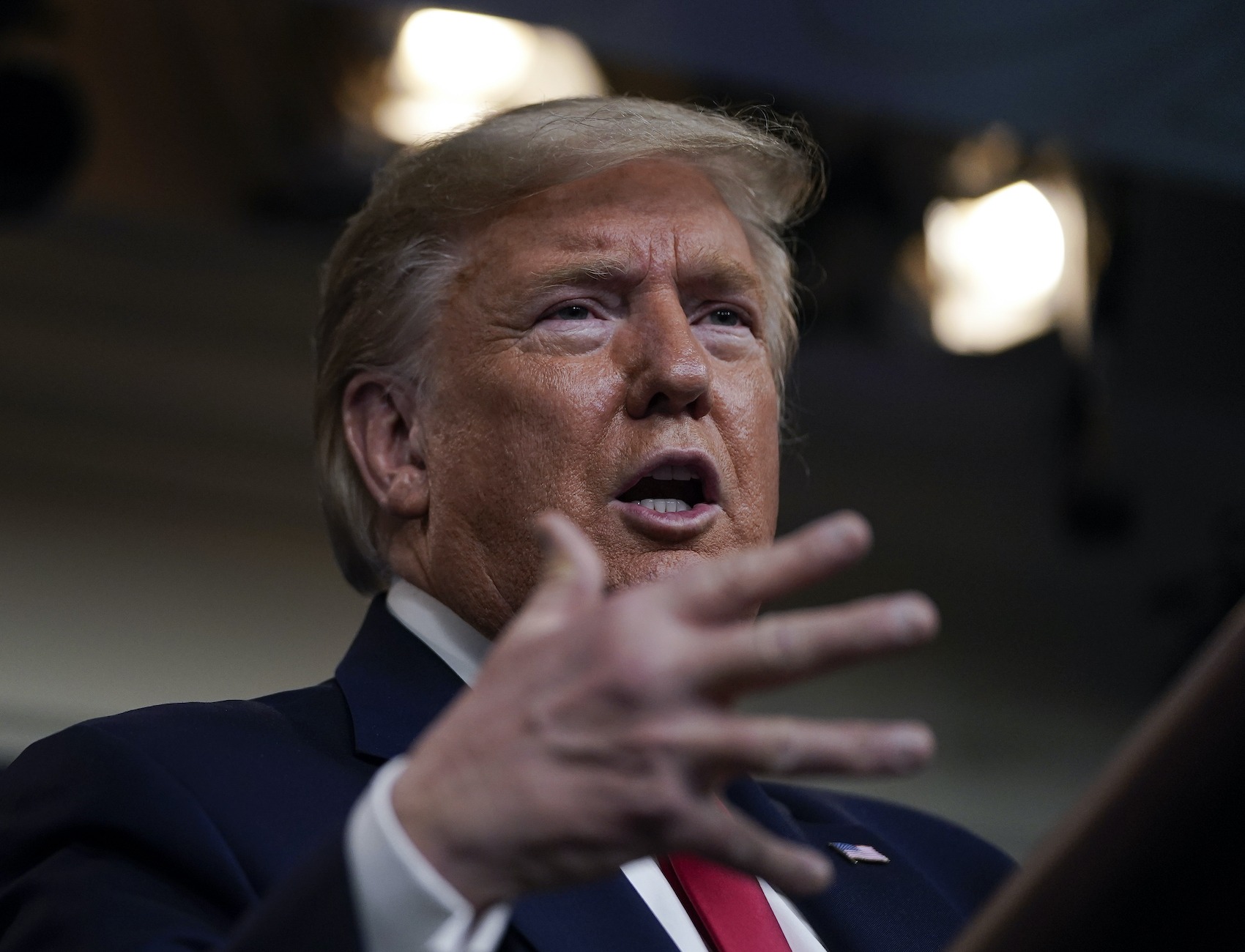Our Leaders Have the Power to Release People in Prison. Now They Must Use It.
State governors and the president have the authority to grant commutations and reprieves to people in prison across the country as COVID-19 spreads.

This piece is a commentary, part of The Appeal’s collection of opinion and analysis.
As our political leaders scramble to address one of the worst health crises the country has ever experienced, it is imperative that they prioritize the release of some of the country’s most vulnerable people from prisons, where containing the spread of COVID-19 is simply not feasible.
Many people in prison are over the age of 60 and have chronic medical conditions such as lung disease, heart disease, and diabetes. Coronavirus is more likely to be devastating, even deadly, for these people, but correctional facilities do not give them the option of avoiding close contact, as the Centers for Disease Control and Prevention has prescribed in order to contain the virus’s spread. Most U.S. detention facilities force people to bunk with one or two others, and some require them to sleep and eat in large communal areas. Social distancing in these environments is impossible. Even basic hygiene is a luxury: Many people in prison have no access to hand sanitizer and struggle to pay for soap.
We are already hearing reports of incarcerated people, corrections officers, and medical staff testing positive in jails, prisons, and detention facilities around the country. Everyone in these facilities is vulnerable to infection, but the risk goes further. Throughout rural America, local prisons provide employment to a large number of a town’s residents, which means that an outbreak in prison could extend to the families and neighbors of staff members, and overwhelm already resource-starved hospitals and health facilities. The problem, in short, will not stop at the prison gates.
Thankfully, President Trump and state governors have the tools to address this potential health catastrophe before it spirals out of control: Their clemency powers allow them to release people from prisons temporarily or permanently, in many places without the need to get separate approval from a pardon or parole board or go through additional processes. These leaders can bring relief with the stroke of a pen.
The president and most state governors have the authority to shorten an individual’s sentence by commutation, though the scope varies by jurisdiction. Using this power, they can release the most vulnerable people in prisons, which would protect not only those released but also those who remain inside by providing more room and lessening the burden on medical staff. If released individuals pose a risk of transmitting the virus because there have already been cases in the facilities in which they were confined, there can be a period of mandatory home confinement or another condition that would minimize contact with others. Some elderly individuals with chronic health conditions are already awaiting clemency; granting these people release should be a priority, along with identifying others in need of immediate release.
If leaders are concerned that they lack the time to make decisions whose effects are permanent, some can instead use their power to grant reprieves, a less-discussed mechanism for release (at least outside the context of death penalty cases) that would essentially pause a person’s sentence. The release could last only until the pandemic subsides. A great report by Ben Notterman of New York University’s Center on the Administration of Criminal Law documents the legal authority in each state for governors to issue this kind of relief. In states like New York, Washington, Illinois, Pennsylvania, Colorado, and many others, the governor’s reprieve power is especially broad. Released individuals given a reprieve would ultimately have to return to prison to serve the remainder of their sentences. In some cases, though, the governor or the president could decide, based on their good behavior while released, to upgrade the reprieve to a commutation.
Commutations and reprieves will help stop the spread of COVID-19 and protect everyone inside prisons as well as their surrounding communities. While some may be concerned that releasing people early might increase crime rates, the population that would be freed poses a minimal risk of criminal conduct. Elderly people are much less likely to reoffend than younger people, and many have underlying physical conditions that make that risk even lower. Moreover, 95 percent of all people in prison are eventually released, so this effort would just speed up the process, or, in the case of a reprieve, temporarily pause the sentence.
Imprisonment is meant to punish by restricting liberty, not by exposure to illness. The state is obligated to provide for the basic health needs of everyone in its custody. Under these circumstances, this requires maintaining sufficient distance between the people who are incarcerated and providing enough space in medical wards. Protecting the most vulnerable inside these facilities will benefit all of us by stopping the spread of this highly contagious virus. If our states’ governors and the nation’s president fail to grant commutations and reprieves, they will be responsible for the consequences.
Rachel Barkow is the author of “Prisoners of Politics: Breaking the Cycle of Mass Incarceration” and the vice dean and a professor at NYU School of Law.
